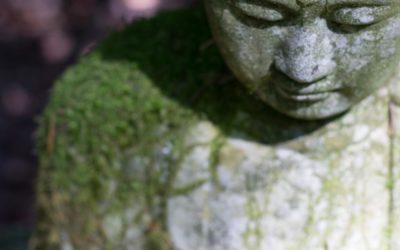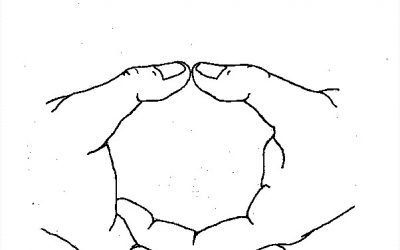What is the Zen concept of Absolute (or God, or the Universe)? Shozan Marc Joslyn addresses this in this article about the nature of the absolute.
Absolute (Universe, God, ?) In the midst of our daily concerns is there anything else worthy of concern? What about the ultimate nature of things? If we risk delving into the ultimate nature of things, and ask (God or Science, for example) what is the basis of everything? or what contains everything? then we’re confronting ‘absolute’. It’s not ‘an absolute’, or even ‘the absolute’; the most comprehensive way of putting it seems to be ‘absolute’ all by itself. Now if we take ‘absolute’ in this absolute sense, it follows that there can only be ONE absolute. Absolute, taken absolutely, cannot be limited or qualified in any way whatsoever or else it is not ABSOLUTE.
That is to say, absolute must contain everything spatially and temporally. Spatially, there can be nothing outside of or bigger than absolute, nor even nothing smaller than absolute. Temporally, there can be nothing earlier than or later than absolute. Indeed, how can there be any exception to absolute without it losing its absolute nature and becoming merely relative, merely ‘sort of absolute’? If there is any spatial or temporal exception to absolute, the result is merely a relative absolute, not truly absolute absolute. It matters not so much if we refer to the absolute as ‘Universe’ or ‘God’ or something else as long as we’re clear that it must embrace everything with no exceptions., and that there is nothing prior to it, nothing succeeding it.
Any exceptions to absolute that we might imagine, have to be given up. Take ‘good’ and ‘bad’, for example, and extend them superlatively to ‘best’ and ‘worst’. Nothing can be better or worse than the best and worst of absolute. What about ‘true’ and ‘false’? Surely, it might be argued, if what we attribute to absolute is true then absolute must exclude the false. No, nothing can escape the absolute. Since absolute embraces us, it must include anything we can possibly think of. In summary then, absolute absolute must be infinite and eternal, the source and repository of all and the source of all that then we assume exists, has existed or could exist.
Tsk tsk! As soon as that all-inclusive statement is posited however, we are faced with a diabolic exception, namely TIME. Unless we assume there is no difference, no change, no motion, no life, or unless we assume that sooner or later each and every event is repeated in precisely the same way as it originally occurred, time is a vast problem. If time is the arrival of something different, something genuinely different from the present past, from where in the future does this newness arrive? If absolute contains all, each passing moment means absolute becoming other than itself, other than what it has just become. What then is the source of this ‘other’, this never-before-occurring newness’? The paradox is if future is outside absolute, then absolute does not contain everything and is not absolutely absolute. And if future is within absolute, there is nothing genuinely new or different about time, so time is not time.
Unwittingly, we experience this paradox everywhere, unceasingly.For other articles on Zen philosophy click here.



